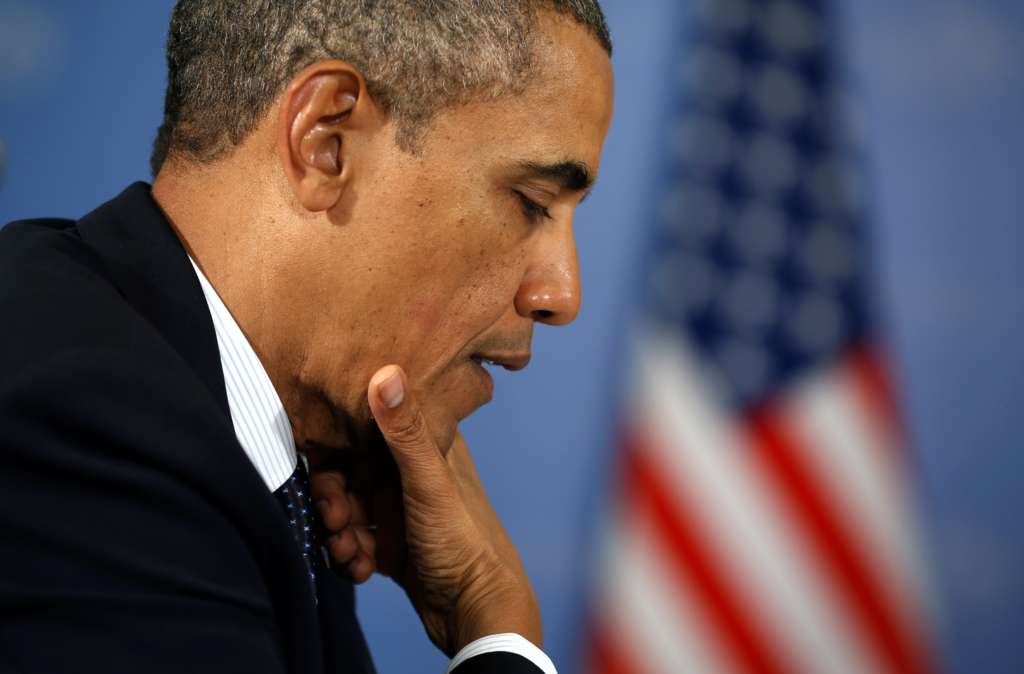In his desire to avoid repeating mistakes made in Iraq, U.S. President Barack Obama believed that he stood out when deciding to overlook the Syrian crisis as it emerged. However, many have come to criticize the negative policy of political neutrality adopted by the Obama administration, and wish it to be reconsidered.
Fifty one diplomats at the U.S. Department of State signed a petition requesting a Syrian military intervention which brings down Bashar al-Assad’s tyrannical regime and puts an end to all the violent crimes his forces commit on a daily basis.
The stance taken by diplomats only reflects the ever increasing support for an intervention, and the dissatisfaction brought about by the current ways tackling the unspeakable horrendous tragedy that Syria is today.
U.S. Senator John McCain stood alone at first, when he demanded an effective confrontation to the vile crimes committed by Assad’s regime, and warned that ignoring the Syrian crisis will create a yet larger issue. He also cautioned that ISIS will cross Syrian borders, spreading terror to the world. Many people, military men, politicians, activists, intellects and diplomats now share that opinion.
Despite all the appalling tragedies and crises occurring all around the world, the Syrian dilemma is considered the worst by far. The Syrian crisis broke all known records on brutality and genocide that are accompanied by war. Over half a million Syrians have been reportedly killed, most of which are civilians, while another ten million have been displaced, a third of which seeking asylum away from their homeland.
The policy on political neutrality did not only allow Assad’s regime to carry on with its killings and driving people away from home, but also inhibited any attempts of U.S. allies supporting the Syrian Opposition or supplying them with U.S.-made artillery.
At the break of the Syrian civil war, no one asked for Washington to partake in offensives, nor to provide arms’ support; however, what was requested is for the U.S. to merely not choke the process of arming the Syrian Opposition.
Arming the Syrian Opposition would have translated into enabling targeted zones to stand against the incessant perilous attacks targeting thousands of civilians.
With the lack of adequate armament, killing and displacing of Syrians became an easy task. Keeping in mind that it is a smaller part achieved of a greater agenda meant for cleansing the population. Iranians and Russians then filled the gap, by creating newfound military conglomerates comprising bigoted sectarian militias gathered from all around the world and injected into Syria.
Facing such dark times, it is only natural for Syria to become the worst and most precarious place in the world. Rendered as such, it now hosts the same terrorism spreading and threatening both Europe and the world.
Sampling in ISIS’ terror and ideology spreading worldwide, the damage entailed by the Syrian crisis is far too great to be accounted for. The destruction which ravaged Syria, breaking down its demographic constituents will make peace a difficult ambition, regardless of how far international parties come to concede on principals.
Moreover, as Iran is left to grow and become a sizable military body which fights beyond national borders- one other ever growing danger is posed. It infected Syria first and now, Iraq.
The chaos we bear witness today is a result of absent policies, and choosing to remain uninvolved. With that being realized, it eventually led to a rare occasion were American diplomats side with an intervention rather against it. Everyone is aware of the unbearable at hand, with security put on stake.
What is more, the request for intervention is accompanied by a long list of supportive intellects and scholars who refuse to uphold a negative policy of political neutrality in Syria. Is their request a good one? Yes, will it be effective? No.
Time is no longer an ally, the U.S. – and for a long time- will be occupied with its own affairs. The elections are right around the corner, and are to be followed with the very slow months of appointing the newly elected President. Not to mention the time spent on assembling the administration and attending. Moreover, a series of activities will also keep the new administration busy.
A year is too long to wait for a change in U.S. policy — the situation requires that regional countries do not rely on the States in putting an end for the current situation.
The growing support for the Syrian Opposition is an elite choice and an ethical one, which might ease the road for regional countries- should they wish- to increase that support and thus push the Syrian peace talks towards a sensible solution.
